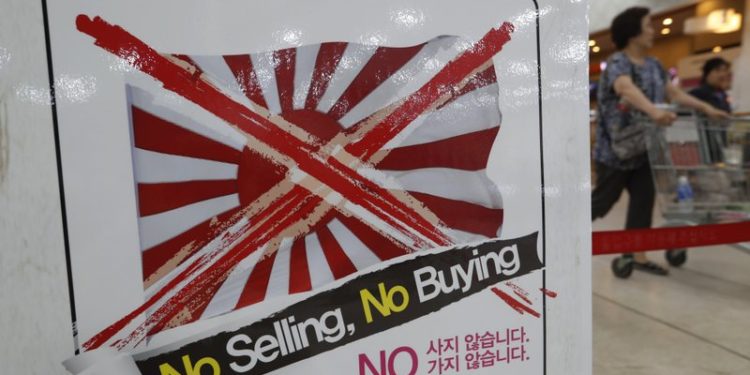South Korean people have taken the initiative to boycott products produced in Japan, as a passive resistance against the worsening political and economic dispute sparked by export curbs between the two East Asian neighbours.
The widespread boycott of Japanese products and services ranges from beverages to clothes and travel. Over 200 supermarkets and grocery stores are refusing to sell Japenese products, despite a 15% loss in sales, according to the Korea Mart Association, a trade group representing them.
Diplomatic tensions intensified since a South Korean court last year ordered Japanese companies to compensate Koreans who were forced to work for Japanese occupiers during World War Two. On July 4, in apparent retaliation, Japan restricted exports of high-tech materials to South Korea but denied the move was related to the compensation issue. Tokyo cited “inadequate management” of sensitive exports, with Japanese media reporting some items ended up in North Korea. Seoul has refuted that.
Cancelled trips
Screenshots of Japan trip cancellations are now trending on social media. Hanatour said it now receives 500 tour reservations for Japan a day, from an average 1,100. Very Good Tour said new bookings fell 10% while cancellations rose 10% week-on-week.
JejuAir and Korean Air reported a “slight drop” in bookings for Japan, with the latter blaming the pulling of the TV ads.
Japan’s Fast Retailing fashion brand Uniqlo, which sells clothes worth around 140 billion yen – 6.6% of its revenue – in 186 Korean stores, is also feeling the heat.
“There is a certain impact on sales,” chief financial officer Takeshi Okazaki, told reporters last week, without elaborating.




